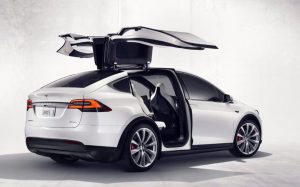The crash of the driverless Tesla car has made big news and has helped to generate additional, necessary discussion about the role such vehicles will play in our lives.
There is little doubt that autonomous vehicles will be a part of our streets and highways – the push is too broad and too strong to stop the effort. There is also little doubt that driverless vehicles will have a huge impact on our economy. For example, what will happen to our 3.5 million truck drivers when driverless trucks are able to operate on our nation’s roadways?
million truck drivers when driverless trucks are able to operate on our nation’s roadways?
But the crash of the Tesla car raises a potential liability issue that there has been little public discussion about: how does a person who believes that he or she has been injured or killed by a software or hardware glitch in an autonomous or semi-autonomous vehicle get access to information to determine if his or her belief is true?
 Day on Torts
Day on Torts

